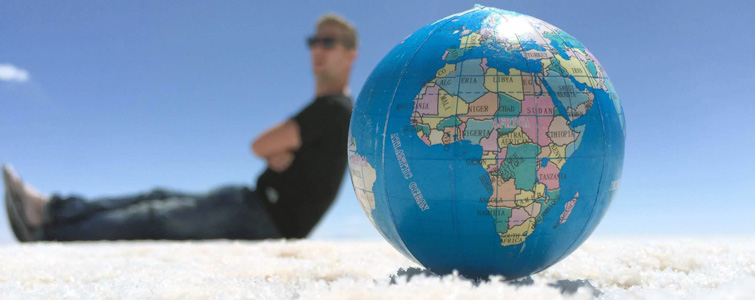Uber Around the World
Ahhh, Uber. What started as a straightforward idea to improve transportation became a worldwide service used by billions of people per year. With a simple phone tap, most people can catch a ride from nearly anywhere to nearly anywhere—at almost any time. Some of us even forget that it wasn’t always like that.
Table of contents
History of Uber
In 2009, Garrett Camp and Travis Kalanick came up with the idea for Uber out of frustration with the limited transport options in San Francisco. From that frustration, they dreamed of a way for people to request rides using their phones.
This, the Uber app launched in 2010. It initially featuring black cars as the primary option (some may actually remember this, although most probably won’t). It very quickly gained massive popularity due to its ease, efficiency, and transparency.
Uber then began to broadened its options to include budget-friendly rides and to expand across the United States and other busy cities around the world. By 2014, the company had expanded to offer services in more than 100 cities inside and outside the U.S.
Global Takeover
Today, Uber is nearly everywhere in the world. Some cities have more riders and drivers than others. For example, according to 2021 data, Uber is most popular in the cities of Los Angeles, New York, São Paulo, and London. Overall, the service operates in approximately 10,000 cities worldwide—every year the exact number changes, but the sentiment remains the same: Uber is a truly global service.
Uber Alternatives
Uber definitely has a massive worldwide presence, but it’s not the only ridesharing option out there. Around the globe—and often distinct to each region—many alternative ride share options have popped up. This providesusers a variety of choices that cater to their needs and preferences (and local laws).
In the U.S., Lyft is Uber’s main rival. Lyft provides a similar service and is well-established in many of the same cities as Uber.
Beyond the U.S., Bolt, Ola, and Didi are popular alternatives to Uber. Bolt is a standard option in Europe and parts of Africa, while Didi is common in South America and China. Grab is another option found chiefly in Southeast Asia.
Alternatives are great because they give riders more options, often with lower prices, improved services, or different vehicle choices. Local regulations or market trends can make local services more appealing than Uber. For example, Didi is famous in China partly because of the regulatory challenges Uber faces there.
Uber Accidents
Yes, Uber has revolutionized transportation. But there are still many challenges to content with. For example, what happens if you’re a passenger and your Uber is in an accident?
Uber maintains that safety is a top priority, but accidents still happen. Some of the most common causes of Uber-related accidents include distracted driving (from constantly using the app), driver fatigue, and reckless driving.
Uber has several safety features to reduce the risks of bad accidents, including in-app emergency assistance, GPS tracking, and driver background checks. However, being involved in an Uber accident can be stressful, especially if you’re abroad.
While Uber has robust insurance for these situations, those involved in Uber accidents as a passenger should get help. If you or someone you know had an accident taking a rideshare service, it’s best to seek the help of an Uber accident attorney to get information on how to proceed.
Inappropriate Behavior
Another problem that comes up with Uber rides is inappropriate behavior. Has anyone else had friends (especially female friends) who have had Uber drivers treat them inappropriately, even going as far as insistently asking them on dates or privately writing them on their personal phone number after the ride is finished?
Uber has guidelines for both driver and rider behavior. Ridesharing services, including Uber, often have a two-way rating system which can help address issues with etiquette and respect between passengers and drivers.
The system is meant to keep everyone accountable. If a person’s rating drops too low, they could get kicked off the app. This goes for both passengers and drivers—a good incentive for everyone to be on their best behavior in order to continue to use and enjoy the service.
In extreme cases of bad behavior, either party should be immediately reported to the app. Uber’s customer service takes reports of inappropriate behavior very seriously.
Conclusion
Regardless of the angle you look at it, Uber has transformed how we travel. It started in San Francisco and has taken over the world—even to some of the most unexpected corners. Uber has plenty of competition, but nothing changes the fact that they were one of the first. And arguably, without the company’s rise, we still would be relying on taxis (which are infamously unreliable). So, let’s raise a glass to the best and the worst of Uber.
Remember, never travel without travel insurance! And never overpay for travel insurance!
I use HeyMondo. You get INSTANT quotes. Super cheap, they actually pay out, AND they cover almost everywhere, where most insurance companies don't (even places like Central African Republic etc!). You can sign-up here. PS You even get 5% off if you use MY LINK! You can even sign up if you're already overseas and traveling, pretty cool.
Also, if you want to start a blog...I CAN HELP YOU!
Also, if you want to start a blog, and start to change your life, I'd love to help you! Email me on johnny@onestep4ward.com. In the meantime, check out my super easy blog post on how to start a travel blog in under 30 minutes, here! And if you just want to get cracking, use BlueHost at a discount, through me.
Also, (if you're like me, and awful with tech-stuff) email me and my team can get a blog up and running for you, designed and everything, for $699 - email johnny@onestep4ward.com to get started.
Do you work remotely? Are you a digital nomad/blogger etc? You need to be insured too.
I use SafetyWing for my digital nomad insurance. It covers me while I live overseas. It's just $10 a week, and it's amazing! No upfront fees, you just pay week by week, and you can sign up just for a week if you want, then switch it off and on whenever. You can read my review here, and you can sign-up here!













 As you know, blogging changed my life. I left Ireland broke, with no plan, with just a one-way ticket to Thailand
and no money. Since then, I started a blog, then a digital media company, I've made
more than $1,500,000 USD, bought 4 properties and visited (almost) every country in the world. And I did it all from my laptop as I
travel the world and live my dream. I talk about how I did it, and how you can do it too, in my COMPLETELY FREE
Ebook, all 20,000
words or so. Just finish the process by putting in your email below and I'll mail it right out to you immediately. No spam ever too, I promise!
As you know, blogging changed my life. I left Ireland broke, with no plan, with just a one-way ticket to Thailand
and no money. Since then, I started a blog, then a digital media company, I've made
more than $1,500,000 USD, bought 4 properties and visited (almost) every country in the world. And I did it all from my laptop as I
travel the world and live my dream. I talk about how I did it, and how you can do it too, in my COMPLETELY FREE
Ebook, all 20,000
words or so. Just finish the process by putting in your email below and I'll mail it right out to you immediately. No spam ever too, I promise!
